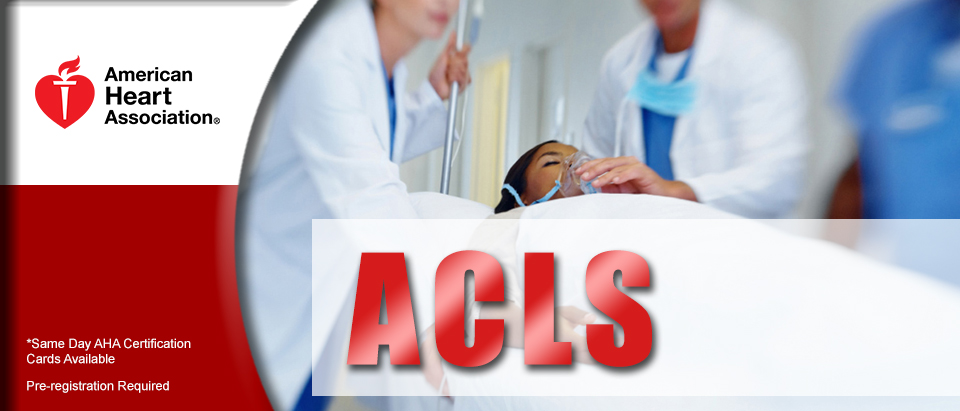
The ACLS course focuses on inculcating life saving BLS skills and highlights services relating to recognizing and managing cardiopulmonary arrest, immediate response towards cardiac arrest, stroke, acute coronary syndrome(ACS) and acute and dysrhythmia.
ACLS course content
The ACLS course focuses on providing training related to the following aspects:
- BLS skills including bag mask usage, AED usage and chest compressions.
- Recognizing and responding to cardiac and respiratory arrest.
- Recognizing and responding to pre arrest conditions like symptomatic bradycardia
- Related pharmacology
- Airway management
- ACS and stroke management
Course description
Advanced Cardiac Life Support is basically an advanced, instructor led course that focuses on application of BLS skills in emergency situations. It offers the following benefits:
- Latest resuscitation techniques for better services in emergencies.
- Simulations, realistic scenarios and animated depiction of emergency situations.
- Content flexibility according to local protocols.
The ACLS course focuses on three key aspects:
- Importance of cardiopulmonary resuscitation (CPR) for survival.
- Integrating BLS with ACLS techniques.
- The significance of team interaction and effective communication in the resuscitation process.
The course focuses on the following aspects of resuscitation:
- Transcutaneous pacing
- Airway management
- Cardioversion
- Rhythm recognition
- Use of medications
- Defibrillation
- Intravenous (IV) access
The course has duration of approximately 12 hours for medical providers who may be taking the course first time. The renewal course duration is approximately 6 hours.
The ACLS certification is valid for a period of 2 years post which it may require a renewal.
Who can take the course?
The course may be taken up by medical professionals who are involved in cardiovascular emergencies and cardiopulmonary arrest. This includes professionals like paramedics, physicians and nurses.
There are certain pre-requisites for medical providers willing to take up the course. Few of them are:
- Ability to interpret electrocardiograms (ECG’s)
- Ability to identify rhythms related to bradycardia and tachycardia.
- Identifying pulseless arrest
- Knowledge of drugs used in post-cardiac care, cardiac arrest, tachycardia with adequate and poor perfusion and Bradycardia.
The ability to identify rhythms is an important prerequisite for taking up the ACL course. These rhythms include:
- Organized rhythm without pulse
- Normal sinus rhythm
- Ventricular fibrillation
- Sinus bradycardia
- Asystole
- Second degree Type I and II AV block
- Ventricular tachycardia
- AV block of third degree
- Supraventricular tachycardias
- Sinus tachycardia
ACLS Instructor Courses
The instructor course consists of two modules namely the ACLS course for delivery and the instructor course.
The Instructor course is an essential course for ACLS Instructor candidates. The course comprises of an online module for pre learning in addition to in class module. The course focuses on teaching Instructor candidates application of communication techniques, promotion of knowledge, managing classroom environment, and skill transfer. The candidates willing to take up instructor course must possess an ACLS provider card.
The ACLS course effectively trains medical providers for emergency situations. The skills acquired can help to save lives.














